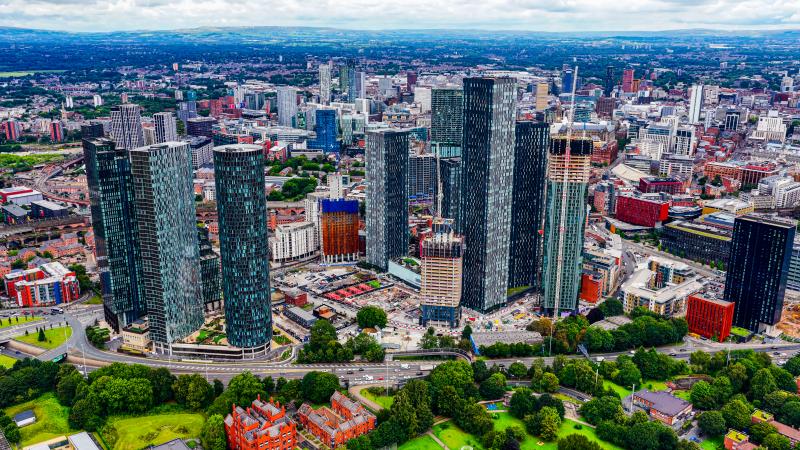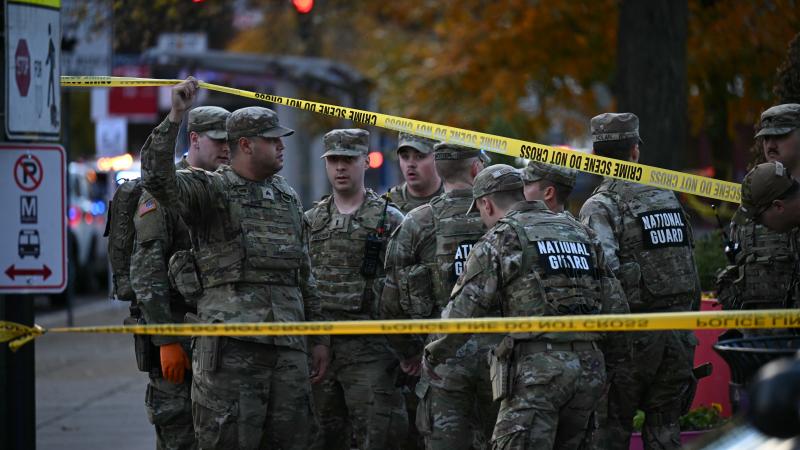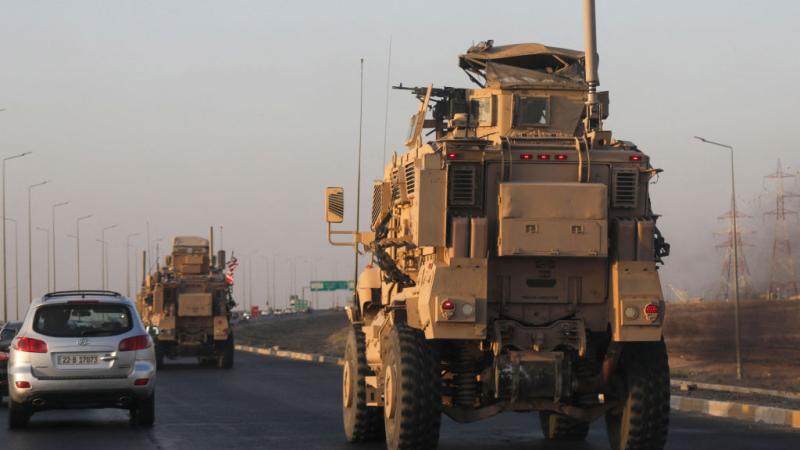Hate in Lower Hudson Valley: Hasids targeted by a new anti-Semitism
Shocking rise in violent crimes of bias against Jews in New York area accompanied by unsettling rationalizations
Attorney General William Barr came to Boro Park, Brooklyn on Jan. 28 and spent two hours meeting with Jewish leaders. His message: The Trump administration would "plant its flag" and "show zero tolerance" for violent bias crimes against Jews, which the New York Police Department estimates rose a striking 26% in 2019.
New York City’s neighborhoods had been relatively quiet for many years since the infamous 1991 Crown Heights riots (sometimes called “America’s Kristallnacht"). But by fall of 2019 “acts of anti-Semitism [had] become part of everyday life … with viral videos of each incident quickly becoming old news as fresh footage arrived to replace it,” reported Malka Groden, an Orthodox Jew who lives in Crown Heights, in City Journal.
“Crown Heights highlights from the last few months,” Groden continued, “include a rock hurled at a bus carrying elementary school girls; the same elementary girls’ school window smashed with a gun on a Friday night; a homeless man from a Bronx shelter entering the central community synagogue at 770 Eastern Parkway and yelling that he would ‘shoot up the place and kill everyone.’”
But even as Barr tended to New York City, more hot spots were already flaring on the other side of the Hudson River, including in a relatively unlikely place, the semi-rural, Norman Rockwell-esque towns of Rockland County, about an hour by car outside of the city.
Rockland County’s population is diverse — and getting more so every day as people flee high rents in gentrifying boroughs like Brooklyn. The population is predominantly white working- or middle-class, but over the years there have been successive waves of new immigrants: Puerto Ricans, East Asians, and now Hasidic Jews.
Several days before Barr visited Brooklyn, Rockland’s town supervisors had for the first time held their annual meeting and thrown the doors open to the public. They called this very public board meeting a “Five Towns Summit” to “promote unity and combat hate.” They were responding to a spate of violent attacks against Jews during the 2019 holiday season, but also to some of the unsettling public reaction to those attacks — the way things didn’t calm down as expected; the way, as seen in angry county meetings and on social media, residents continued to vent rage about Jews.
And lo, when the supervisors put out the word, the public came — in numbers large enough to pack the hotel ballroom chosen for the meeting: Portly middle-aged men in union local windbreakers mingled with younger men in suits with Warby Parker-esque spectacles, who mingled with recent immigrants from India and grandmothers whose families must have come over from Italy many decades ago.
Meanwhile, standing stiffly against the back wall, or outside pacing in the lobby engaged with cell phones, were the bearded men in the tall black hats — ultra-Orthodox Jews, who, though no one would say it in so many words, were the urgent subject of this meeting.
Were they “upenders of the system we have been raised in,” the “rapers and pillagers of the East Ramapo Central School District,” “the number one supporters of child abuse,” as speakers at a county meeting alleged in early January? Or were they merely … well, this is what the meetings — which will now occur regularly — intend to straighten out.
Hasidic Jews tend to make headlines wherever they go, because their odd style of dress marks them so clearly as a group, and because they tend to exfiltrate and immigrate en bloc. Following the biblical mandate to “be fruitful and multiply,” the typical family has eight children. When they buy up buildings in new neighborhoods outside of New York City, they combine resources and buy several buildings — often in dilapidated black and Hispanic neighborhoods where land is cheap — in order to build the synagogues, schools, and kosher supermarkets which must be clustered close together for the Sabbaths, when driving is forbidden.
Priced out of Brooklyn like so many others, or newly rich from selling a Brooklyn brownstone to a developer, the county's new arrivals have been pouring into the hamlet of Monsey in the town of Ramapo. According to the 2000 census, more people in Monsey spoke Yiddish (41%) and Hebrew (7%) combined at home than they did English (44%).
But all of this community's family formation and home-making-on-steroids is occurring as non-religious populations are turning against marriage, embracing “one and done” childbearing, living alone, and favoring renting over owning. The baby-making and home-buying become much more conspicuous, in other words.
Last summer, the widespread belief that Jews are “taking over” the county emerged from the underground when a local GOP chapter published an ominously scored video sounding the alarm. “A storm” was “brewing in Rockland,” it warned, and the stakes were nothing less than “Our families ... Our Schools ... Our Communities ... Our Water .... Our Way of Life." The scare video concluded starkly: "If they win, we lose.”
After much press attention, the committee took the video down.
The first eruption of specifically anti-Jewish violence in 2019 occurred near the end of the year. Hasids have been establishing a community — anchored by the traditional combination of synagogue, religious school, and kosher supermarket — on one block in one neighborhood of Jersey City, N.J. On Dec. 10, that relatively new kosher supermarket was stormed by a man, 47, and a woman, 50, carrying high-powered rifles. They fatally shot three civilians inside the store and then engaged in a shootout with police that went on for hours until they were both killed.
The shooters turned out to be members of the Black Israelite movement, until now seen as relatively harmless nutters prone to rant conspiratorially at tourists in Times Square about “White devils” and “bloodsucking Jews.” But this time the group was connected to an actual attack — and a large-scale one at that. The FBI reported that the van the shooters parked in front of the grocery store had contained a homemade bomb big enough to cause casualties out to a range of 500 yards.
Much of the public reaction to this story urged peace and harmony, as one would expect. Still, there were distinct pockets of very public “they got what they deserved” sentiment.
“Where was all this [official concern] when Black homeowners were threatened, intimidated and bullied by the I WANT TO BUY YOUR HOUSE brutes of the jewish [sic] community?” roared a member of Jersey City’s Board of Education on her Facebook page.
The news cycle had barely processed the supermarket murders when a rabbi was stabbed multiple times on a Monsey sidewalk. Then, on Dec. 28 the home of a rabbi hosting a Hanukkah celebration was invaded by a man wielding a machete. He stabbed seven people before he was chased away, back into his car and into the night. One of the victims has never regained consciousness and is permanently brain damaged. An alleged perpetrator, whose license plate number matched the number snapped by a guest at the Monsey house, was apprehended, wearing clothes covered with blood, on an upper Manhattan street, and is still in custody pending a trial.
When Governor Cuomo turned up in Monsey on Jan. 13, nearly two weeks after the synagogue attack, to announce via a showy press conference that he was allocating money to pay for more license-plate-reading cameras (of the kind that had helped nab the Monsey machete attack suspect), social media filled with resentful complaints.
“Where’s he getting the money for this?” demanded Eduardo Sanchez at the North Rockland Community Facebook page in the comment thread following a Jan. 13 article on the Cuomo visit at hyperlocal news outlet lohud.
“What about the rest of Rockland,” asked Jill Jones Pinzon. “Oh, wait…I forgot we don’t matter.”
“Cuomo is NOT worried about our childrens’ safety he's only worried about who's in his pocket! That is why he only worries about one community …” opined Annette Gullified.
In light of all this real or perceived injustice, Rocklanders have taken to going to county legislature meetings rallied by social media notices urging the public to “Confront Weider,” i.e. Aaron Weider, the body’s lone Hasidic representative.
According to a Jan. 25 post on the Facebook group “Clarkstown: What They Don’t Want You to Know,” Weider is part of the “Ramapo Mafia … which has begun a concerted effort to hijack and circumvent longstanding local and state law under the guise of religion.“ The more specific charges against Weider are hard to pin down but include “having the mark of Cain” on his forehead, as one member of the public put it during the county meeting Q & A period.
Through all this, most Hasids are defiant and seemingly calm. They insist that they are just buying houses because they want to raise their big families; they say they pay plenty of taxes (public records bear this out), and they point out that one of the largest entities using its religious status to claim a tax exemption in Ramapo is the Catholic Church. (Its mansion there, set on sweeping grounds equipped with a private dock, has an estimated current market value of at least $2 million, according to Trulia.)
Where will all this go? The story is still being written. Meanwhile, official Rockland — and the great majority of its residents — are doing what they can: asking questions, attempting to sort truth from fiction, attempting to drop the euphemisms and meet face-to-face — in meetings like the one on Jan. 23, with many more to come.
















